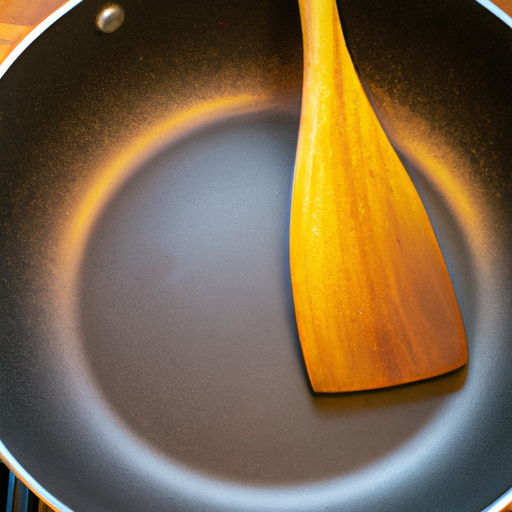JaneDoe
These tips were really helpful. I didn't know that using metal utensils on non-stick cookware could damage the coating. Thanks for the advice!

Before diving into the cleaning and maintenance process, it's important to choose the right cookware for your needs. Consider factors such as material, durability, and heat conductivity. Different materials, such as stainless steel, cast iron, and non-stick coatings, require specific care methods. Select cookware that suits your cooking style and preferences.
After each use, it's crucial to clean your cookware properly to remove any food residue and prevent buildup. Follow the manufacturer's instructions for cleaning, as different materials may have specific requirements. Generally, handwashing with mild dish soap and warm water is recommended. Avoid abrasive cleaners or scrubbers that can damage the surface of your cookware.
Sometimes, stubborn stains or burnt food may cling to your cookware despite regular cleaning. To tackle these tough spots, create a paste using baking soda and water. Apply the paste to the stained areas and let it sit for a few hours or overnight. Then, gently scrub with a non-abrasive sponge or cloth. This method is effective for removing stains without damaging the cookware's surface.
Non-stick cookware requires special care to preserve its coating. Avoid using metal utensils that can scratch the non-stick surface. Instead, opt for silicone, wood, or plastic utensils. Additionally, avoid cooking on high heat, as excessive heat can damage the non-stick coating. Regularly inspect the surface for any signs of wearand tear, and if you notice any scratches or peeling, it's time to replace the cookware to ensure food safety and optimal performance.
Proper storage is essential to maintain the quality of your cookware. Avoid stacking heavy pots and pans on top of each other, as this can cause scratches and damage. If space allows, consider hanging your cookware on a pot rack or using protective dividers between the pieces. Store lids separately to prevent them from scratching the surfaces of the pots or pans.

| Cookware Material | Cleaning Method | Maintenance Tips |
|---|---|---|
| Stainless Steel | Handwash with mild dish soap and warm water | Avoid using abrasive cleaners or scrubbers |
| Cast Iron | Clean with hot water and a stiff brush, no soap | Season regularly with oil to maintain the seasoning |
| Non-Stick | Handwash with mild dish soap and warm water | Use silicone, wood, or plastic utensils |
| Copper | Handwash with mild dish soap and warm water | Polish regularly to maintain the shine |
| Aluminum | Handwash with mild dish soap and warm water | Avoid using metal utensils to prevent scratching |
By following these tips for cleaning and maintaining your cookware, you can extend its lifespan and enjoy cooking with high-quality tools. Remember to always refer to the manufacturer's instructions for specific care guidelines based on the material of your cookware.
JaneDoe
These tips were really helpful. I didn't know that using metal utensils on non-stick cookware could damage the coating. Thanks for the advice!
CookingEnthusiast
I've always struggled with cleaning my cookware properly. This article provided clear and concise instructions. Highly recommend!
Foodie123
Some of the tips were basic and common knowledge, but there were a few useful reminders. Overall, an okay read.
ChefMaster
As a professional chef, I can vouch for the accuracy of these tips. Proper cookware maintenance is crucial in a commercial kitchen. Well-written article!
KitchenNovice
I recently invested in new cookware and wanted to make sure I take care of it properly. This article guided me through the cleaning and maintenance process. Thank you!
|
|
Orval Conn is a culinary expert with years of experience in the kitchen. As a passionate cook and food enthusiast, Orval understands the importance of proper cookware care and maintenance for achieving delicious results. Through years of trial and error, Orval has mastered the art of keeping cookware in top-notch condition. |